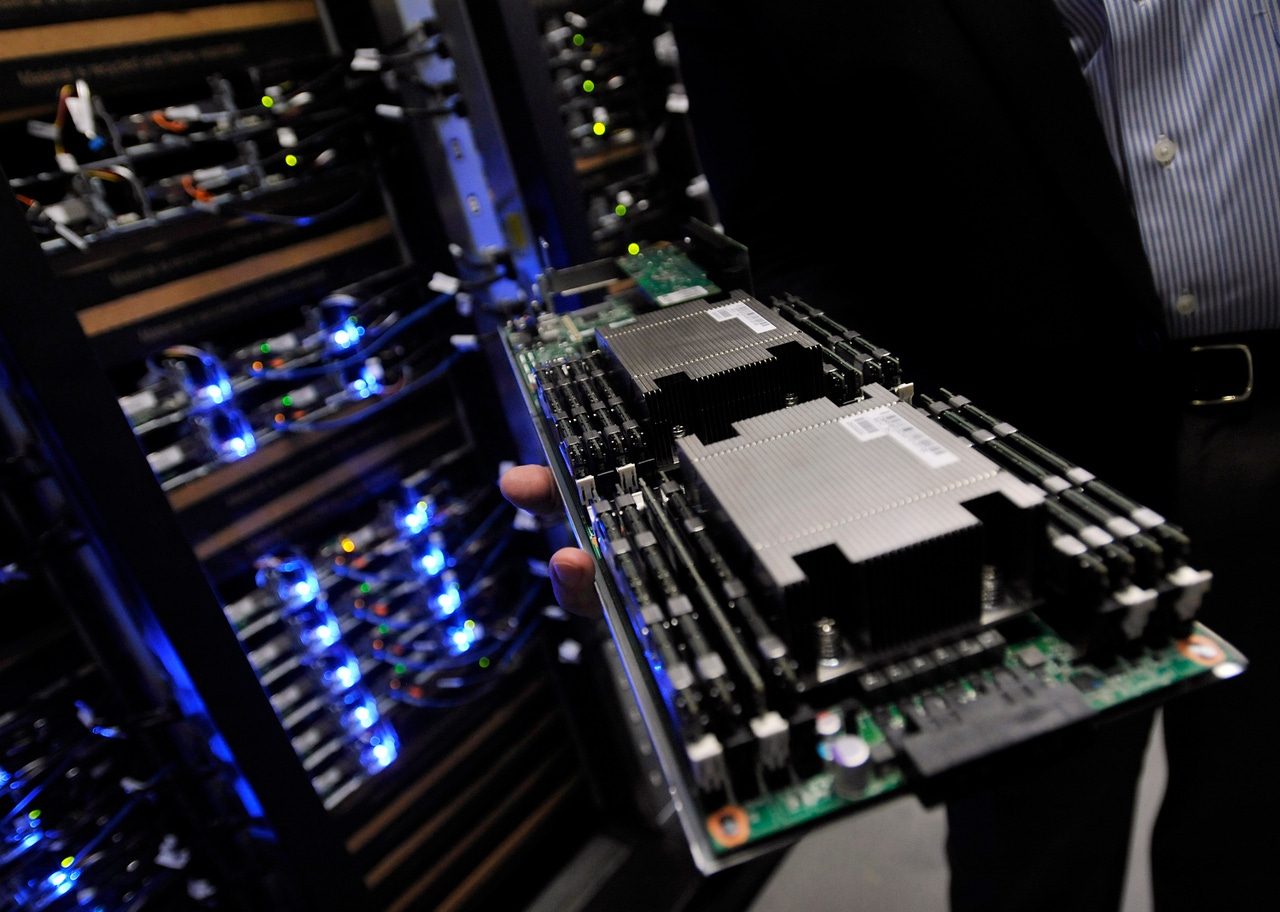Chip Stocks Saved From IPhone Fate by Data Center Building BoomChip Stocks Saved From IPhone Fate by Data Center Building Boom
As the smartphone boom subsides, hyperscale cloud platforms make up the difference with tens of billions of dollars spent on data centers.
May 25, 2018

Ian King and Jeran Wittenstein (Bloomberg) -- The end of the smartphone boom was supposed to hammer chipmakers. But the internet has come to the rescue.
Semiconductor companies’ financial results for the March quarter showed the $400 billion industry buoyed by demand from technology giants like Amazon.com Inc., Google, Microsoft Corp. and Facebook Inc. They’re spending heavily to build huge networks of data centers to run retail operations, search engines, cloud services and social networks over the internet.
What data centers need most are powerful chips for crunching and storing data. That’s a welcome development for chipmakers that have chased an increasingly saturated smartphone market for years.
"Over the last decade the semiconductor industry was at the mercy of the Apple product cycle," said Mehdi Hosseini, an analyst at Susquehanna Financial Group LLP. Yet in recent months, many chipmakers like Micron Technology Inc. and Western Digital Corp. have beat earnings estimates and raised forecasts despite disappointing sales of Apple Inc.’s flagship iPhone X, Hosseini said.
The reason is surging cloud-infrastructure spending. Last year, Amazon, Google parent Alphabet Inc., Facebook and Microsoft together spent about $40 billion on new plants and equipment, most of it data center-related. The spending -- a lot of it on machines full of products from companies like Micron and Western Digital -- by those big tech companies is expected to rise to more than $58 billion in 2018, according to analyst estimates compiled by Bloomberg. Add in what Chinese internet companies like Alibaba Group Holding Ltd. and Tencent Holdings Ltd. are investing and the expenditures are even greater.
Even though smartphone unit sales are projected to shrink for the first time ever this year, there are still billions of devices constantly generating and demanding reams of data. That’s in addition to the surging use of cloud computing as companies increasingly outsource the work of storing and crunching corporate data to providers such as Amazon Web Services. Data center demand has propped up prices and fueled revenue at semiconductor companies, which have been among the best performing stocks. The Philadelphia Semiconductor Index has more than doubled in the past two years, close to twice the gains by the tech-heavy Nasdaq Composite Index and three times better than the broader Standard and Poor’s 500 Index.
Among chip companies, the most obvious new beneficiary is Nvidia Corp., which has successfully adapted its graphics chips to perform work like voice and image recognition in the burgeoning field of artificial intelligence. Graphics chips, typically used in personal computers to help make games look more realistic, are good at performing multiple small calculations at the same time, something that cloud providers are increasing finding useful in servers. The company’s data center revenue rose 71 percent in the quarter it just reported to $701 million. In 2016, Nvidia’s server unit had less than half that amount for the whole year.
Intel Corp.’s data center group, which contributes a third of total sales, came within a whisker of becoming its biggest source of profit in the first quarter. Sales to cloud providers for that unit jumped 45 percent from a year earlier, and combined with telephone companies, provided 60 percent of the division’s sales. Intel has been the prime beneficiary of the cloud surge because it has a 99 percent market share in servers. It has even been able to raise prices, something virtually unprecedented in the chip industry, where prices have always come down over time.
The server market pays winners handsomely. Pair a top-of-the line Intel Xeon server processor with a professional graphics-chip card from Nvidia and you will face a bill of $15,000 for just two components. Even a high-end iMac from Apple Inc. can be had for less than a fifth of that amount. Underlining how profitable the business is, Intel’s data center unit turned $19 billion of sales into $8.4 billion of operating profit last year. International Business Machines Corp. had overall sales of $79 billion, which returned $10 billion of operating profit in the same period.
Data center growth is also helping to smooth fluctuations in traditional demand cycles in the market for memory chips, Micron Chief Executive Officer Sanjay Mehrotra said in an interview. Cloud computing is "extremely important” for Micron, he said. "Data is just exploding. It’s being stored in the cloud, processed through the cloud and all of that processing needs to be fast, so it needs fast DRAM."
Both of Micron’s main products, computer memory -- known as dynamic random access memory -- and data-storage chips are crucial parts of servers. Adding more main memory speeds up the amount of calculations a server can make and using chips rather than magnetic disks to store information makes it accessible much more quickly. Such enhancements are vital for companies like Facebook, whose data centers cost much more in electricity to run than they do to equip with hardware. The faster their computers can do their job, the more power-efficient they are.
All of that growth has some analysts worried. The flood of new servers and the machinery that stores information and sends traffic around networks is great news now for their producers, but could cause problems in the future. If they put too much infrastructure in place too quickly, the cloud providers who’ve boosted demand for chips so much might suddenly cut orders, causing a rapid decline in the fortunes of chipmakers, according to Susquehanna’s Hosseini.
About the Author
You May Also Like









